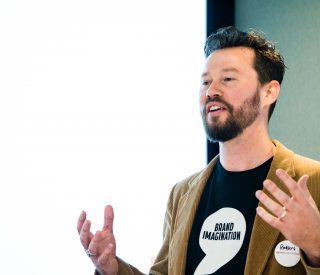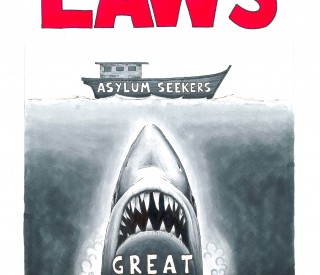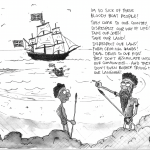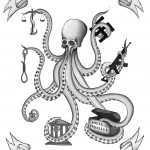My following article was published today in Online Opinion, Australia’s leading journal for social and political debate:
Whilst the US led war on terror persists with frantic fervour; the Iranian and Trans-Afghan pipelines become the new target in a proxy war for power. Writes Reuben Brand
Oil, as history tells us, equals bad news for those who have it, or in this case those who have a transport route for it.
The US have had the blueprints for the Trans-Afghan pipeline since the mid 1990’s and have thus far kept them successfully out of the spotlight. The major thorn in the side of this black gold Silk Road is to secure complete control of the region, a plan that proves to be increasingly problematic for the new Obama Administration.
Pakistan is the doorway to Asia and holds the keys to the Middle East, so it comes as no surprise that the current instability in the region serves to bode well for those with ulterior motives.
The last time I was in Peshawar, the largest city in the North West Frontier Province – roughly 60 km’s from the Afghan border, anti US sentiment was running thick on the ground and the tension in the region was palpable.
Not much has changed – And why should it? Pakistan is now, more than ever, in the crosshairs of the US led “war on terror.”
In a desperate bid to win the never ending “war on terror,” the US has increased asymmetric incursions and drone attacks into Pakistan’s Federally Administered Tribal Areas. These continuous covert operations leave very few options on the table for the now flailing Pakistani government and highlight the geopolitical importance of Pakistan and current US intentions in the region. Control.
So what does Pakistan have that the US so desperately want? Nuclear weapons, an oil route and apparently Osama Bin Laden. Iraq only had one, Iran supposedly has one, but Pakistan has got the trifecta – the undisputed sweepstake winner.
The proposed Iran-Pakistan-India pipeline (IPI) is the proverbial fly in the ointment for the US oil express. The IPI will run through some of the most dangerous regions in the world and could be heading straight into China. These pipes of regional integration have the potential to increase the now unstable diplomatic ties between the neighbouring countries and turn Pakistan into an energy hub. A connection and shift in power that terrifies the United States.
The Trans-Afghan pipeline is the coveted contract that Halliburton, Dick Cheney’s company, seized with the help of the Unocal Corporation in the mid 1990’s. The obvious problems standing between the US and the rich oil and natural gas reserves of the Caspian Basin is a safe transport route and no competition; namely the IPI pipeline, dubbed the “peace pipeline.”
In an address to the US Congress in1998, the vice president for international relations of Unocal, John Maresca, said that the major problem with the Trans-Afghan pipeline was “how to get the vast energy resources to the markets where they were needed. Central Asia is isolated. Their natural resources are land locked, both geographically and politically.”
“The only other possible route is across Afghanistan, which has of course its own unique challenges – we have made it clear that construction of the pipeline we have proposed across Afghanistan could not begin until a recognized government is in place that has the confidence of governments, lenders, and our company,” said Maresca.
In the post 9/11 scenario, Afghanistan has been invaded and politically deposed. Hamid Karzai was installed as the new President and quickly signed a trade agreement with neighbouring countries to secure the Trans-Afghan pipeline. Not surprisingly, before his installation, Karzai worked as a consultant for Unocal.
Agha Riaz ul Islam, a respected and senior member of the Pakistan Peoples Party, said there are two oil pipelines of interest to the US. One of which will go through Georgia, Turkey and Europe, the other from Tashkent, Samarkand, Uzbekistan to Afghanistan and into the North West Frontier Provence (NWFP) of Pakistan to the sea port at Gawadar.
The US knows it must secure an agreement with either the government or the tribal leaders of the NWFP for their pipeline. But according to Riaz ul Islam, the US and NATO, under the pretext of Osama Bin Laden and Al Qaeda, are attempting to invade the border region where the pipeline will cross and secure control by force through the tribal chiefs.
Riaz ul Islam said the US wants to capture complete political control of Afghanistan, Waziristan and the entire oil route to Gawadar for their own security.
“They already have control in Afghanistan physically, although the Taliban have their own governments in each of the provinces. The NATO general in Afghanistan is advising the US that it is possible to have a political settlement with Mullah Omar, the leader of the Taliban – then they could have complete control of Afghanistan,” he said.
Riaz ul Islam is a champion for freedom and democracy in Pakistan and is renowned for speaking out against government corruption and oppression, a title that has landed him in jail on numerous occasions under the previous two dictatorships. “If the US thinks that Mullah Omar can service their political benefit, then they have no problem in talking to him, even if he is a fundamentalist, but if he does not agree with them, they will portray him as a terrorist leader in front of the whole international community.”
The US are giving money, support and ammunition to some of the Afghanis and sending them into Pakistan to sabotage any good relations, said Riaz ul Islam. In an attempt to gain continued support from the international community, the US propagate the idea that the Taliban, fundamentalists and suicide bombers are the real problem behind the ongoing conflicts.
“The US is promoting lawlessness in these areas. They are trying to justify their presence by saying that these areas need their forces on the ground to control the situation – trying to get international permission. They are violating the integrity of the international community to get inside this area to protect their own interests; their oil business and finances. They are presenting their case to the world as if Al Qaeda is the global problem.”
As a result of the US presence in the region and in other parts of the world, the 160 million Pakistanis and the entire Muslim community have been portrayed as being anti European and US. An impression that Riaz ul Islam says is not true. “They are against the policies of these countries, not the people.”
Riaz ul Islam said his fellow country people are concerned about the continued foreign intervention and ask why the US is in the region, and the rest of the world, trying to solve small problems that can be resolved by the local people. “The US and NATO forces have left their own countries and are now violating the world’s original laws,” he said.
“Why are they in Darfur, Iraq, Georgia, and Afghanistan? How can they possibly think that Osama Bin Laden is somewhere in the wilderness here and can invade the US from 2500miles away? Even if he rides on a donkey, it will take him two months to reach Rawalpindi. If Pakistan cannot fight against the US and NATO with their own air force, navy and nuclear weapons how do they think Al Qaeda can fight on donkey? It is a stupid idea that the US are spreading whilst initiating instability throughout the world.”
Riaz ul Islam does not foresee any solution coming out of continued conflict in the border region for control over natural resources and calls for a democratic resolution without bloodshed. “Basically there is only one way. And that is politically. Militarily there is no possibility of settling it.”

























